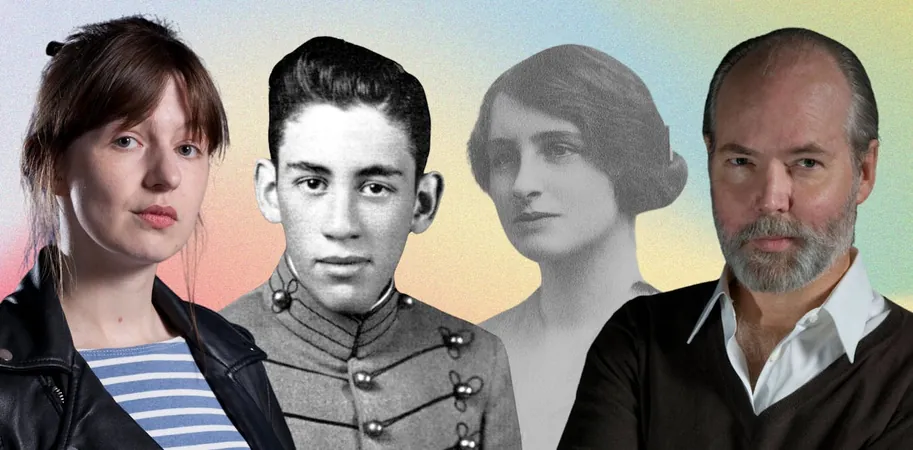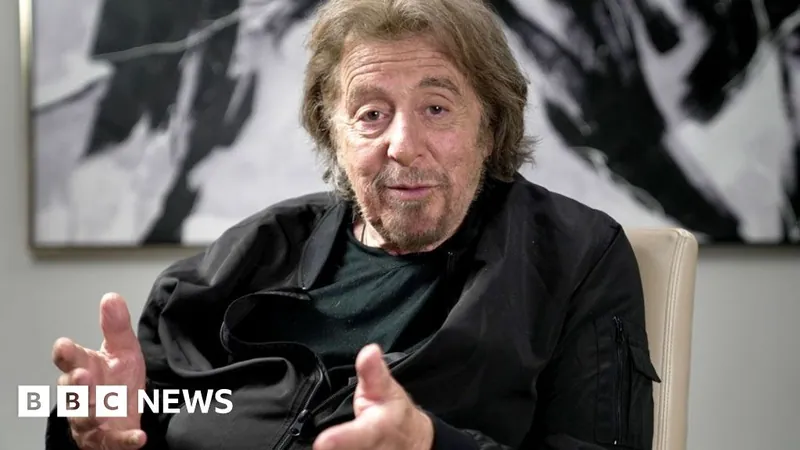
Unpacking the Phenomenon: How Authors Become the ‘Voice of a Generation’
2024-10-14
Author: Emily
Introduction
In recent discussions about literature, Sally Rooney has emerged as the latest author celebrated as "the voice of a generation," a title that seems to have followed a particular pattern throughout literary history. But what does it truly mean to hold such a title, and how do authors gain this recognition?
Historical Context
The concept of a "voice of a generation" isn’t new. It can be traced back to literature from various periods, with Douglas Coupland’s 1991 novel *Generation X* marking a significant moment in this phenomenon. Even further back, J.D. Salinger’s *Catcher in the Rye* (1951) encapsulated teenage angst and disconnection, resonating deeply with young readers then and continuing to echo with subsequent generations.
Renaissance of Generational Thinking
Generational thinking in literature has experienced a renaissance in recent times, but its roots extend further back than many realize. In the 19th century, amidst the backdrop of revolutions and the Industrial Era, artists distanced themselves from traditional roles. Groups of young creatives, like the Pre-Raphaelite Brotherhood, sought to redefine the art world, subscribing to innovative practices that rejected the conventional hierarchy of mentorship. This radical spirit was infused with a robust sense of generational identity, albeit more focused on their individual uniqueness than a collective voice.
Rebels and Outliers
Interestingly, while modern authors who carry the "voice of a generation" label often seem to represent the zeitgeist, historical figures were usually rebels—not in the mainstream, but indeed, bohemian outliers. They had the awareness to recognize their oddities and never claimed to speak for everyone, presenting a paradox in how we interpret historical movements.
The Lost Generation
One pivotal moment in this ongoing narrative occurred after World War I, a time of profound trauma that gave rise to the concept of the "lost generation." Writers like Erich Maria Remarque delivered poignant accounts of the war’s psychological toll on their peers, expressing a rift between the front-line soldiers and the older, detached generation. Notably, the narratives of these “lost” writers glossed over the wealth of other experiences, including the impact on women and children left behind—a stark reminder that the term "generation" encapsulates more than mere age; it involves the complexity of human experiences and relationships.
Oversimplification of Generational Experiences
The embrace of generational labels, while offering a means of collective identity, can often lead to oversimplifications—dangerously homogenizing the experiences of diverse groups. Research underscores that generational themes hold significance, but caution is essential in their application to avoid the pitfalls of generalized stereotypes. Initiatives like *Talking About Generations: 5 Questions to Ask Yourself* provide guidelines for those engaging with the concept, encouraging nuanced discussions that acknowledge individual differences.
Sally Rooney and Collective Representation
Sally Rooney herself has distanced her narrative from the idea of speaking on behalf of an entire cohort, asserting that her representation is solely meant for her experiences. This acknowledgment opens the door for multiple voices to be recognized rather than a monolithic expression for an entire generation.
Conclusion: Embracing Diverse Narratives
In an age where cultural and social diversity is paramount, the need to embrace varied narratives is more critical than ever. As we reflect on what it truly means to be a "voice of a generation," we find that the dialogue must be inclusive. The quest to represent a generation in literature should not just exalt individuals but also amplify the multitude of voices that exist—revealing a rich tapestry of experiences rather than a singular narrative.









 Brasil (PT)
Brasil (PT)
 Canada (EN)
Canada (EN)
 Chile (ES)
Chile (ES)
 España (ES)
España (ES)
 France (FR)
France (FR)
 Hong Kong (EN)
Hong Kong (EN)
 Italia (IT)
Italia (IT)
 日本 (JA)
日本 (JA)
 Magyarország (HU)
Magyarország (HU)
 Norge (NO)
Norge (NO)
 Polska (PL)
Polska (PL)
 Schweiz (DE)
Schweiz (DE)
 Singapore (EN)
Singapore (EN)
 Sverige (SV)
Sverige (SV)
 Suomi (FI)
Suomi (FI)
 Türkiye (TR)
Türkiye (TR)